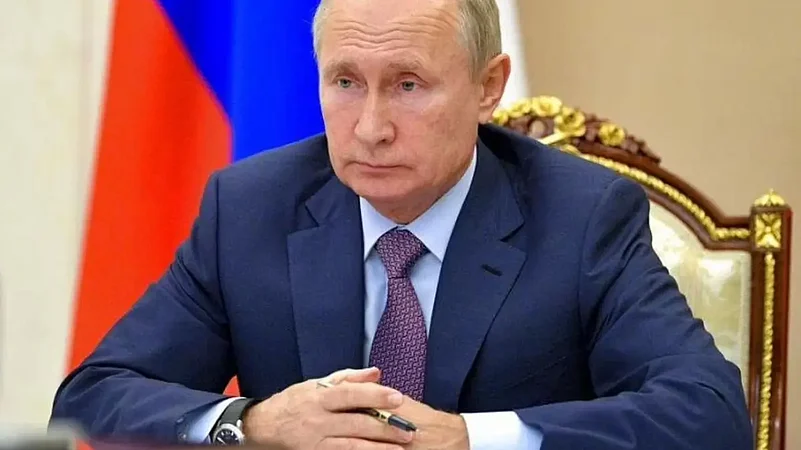Russian President Vladimir Putin on Wednesday said the "politically motivated" Western sanctions on his country have caused global economic challenges like decrease in business activity, a spike in unemployment, a shortage of raw materials and difficulties in ensuring global food security.
In his address to a business conference of the BRICS hosted by Chinese President Xi Jinping, Putin also said that Russia was in the process of rerouting its trade and oil exports towards countries from the grouping which comprises Brazil, Russia, India, China and South Africa.
"New politically motivated sanctions are imposed again and again, the mechanisms of putting pressure on competition are being reinforced," he was quoted as saying by the state-run TASS news agency.
"A deliberate breakdown of cooperation ties is taking place, transport and logistics chains are collapsing," he said. "All this is contrary to common sense and elementary economic logic, is to the detriment of the interests of business on a global scale, and negatively affects the well-being of the population, essentially, of all countries."
"As a result, problems in the global economy are becoming chronic,” he said.
"There is a decrease in business activity, an increase in unemployment, a shortage of raw materials and components, difficulties in ensuring global food security are being exacerbated, prices for grain crops and other basic agricultural products are driven up," Putin said without referring to Russia's invasion of Ukraine.
Putin ordered a "special military operation" against Ukraine on February 24. The US-led Western nations have imposed crippling sanctions on Russia for its invasion of Ukraine.
Ukraine is one of the world's top grain producers along with Russia, but has been unable to export to global markets because of a blockade of its Black Sea ports.
The BRICS countries, Putin said, are developing business in difficult conditions.
"Entrepreneurs in our countries are having to build their business in difficult conditions when Western partners neglect the basic principles of a market economy, free trade, the inviolability of private property, pursue an essentially irresponsible macroeconomic course, including the launch of a printing press, uncontrolled emission and the accumulation of unsecured debts," he said.
Noting that despite all problems and difficulties, BRICS businesses have been "consistently enhancing mutually beneficial ties in the areas of trade, finance, and investment”, Putin said that in the first three months of 2022, trade between Russia and the BRICS countries increased by 38 per cent - and reached USD 45 billion.
"Contacts between Russian business circles and the business community of the BRICS countries have intensified. For example, negotiations are underway to open Indian chain stores in Russia, increase the share of Chinese cars, equipment, and hardware on our market. In turn, Russia's presence in the BRICS countries is growing. There has been a noticeable increase in the exports of Russian oil to China and India," he said.
Putin also said that the Russian financial messaging system is open to connecting banks from the BRICS countries.
"Together with BRICS partners, we are developing reliable alternative mechanisms for international settlements. The Russian Financial Messaging System is open to connection with the banks of the BRICS countries. The Russian MIR payment system is expanding its presence. We are exploring the possibility of creating an international reserve currency based on the basket of BRICS currencies,” the Russian leader said.
"I would like to stress that the Russian strategy does not change: while strengthening our economic, technological and scientific potential, we are ready to openly work with all fair partners on principles of respect to interests of each other, unconditional supremacy of international law, and equality of countries and peoples,” he stressed.


























